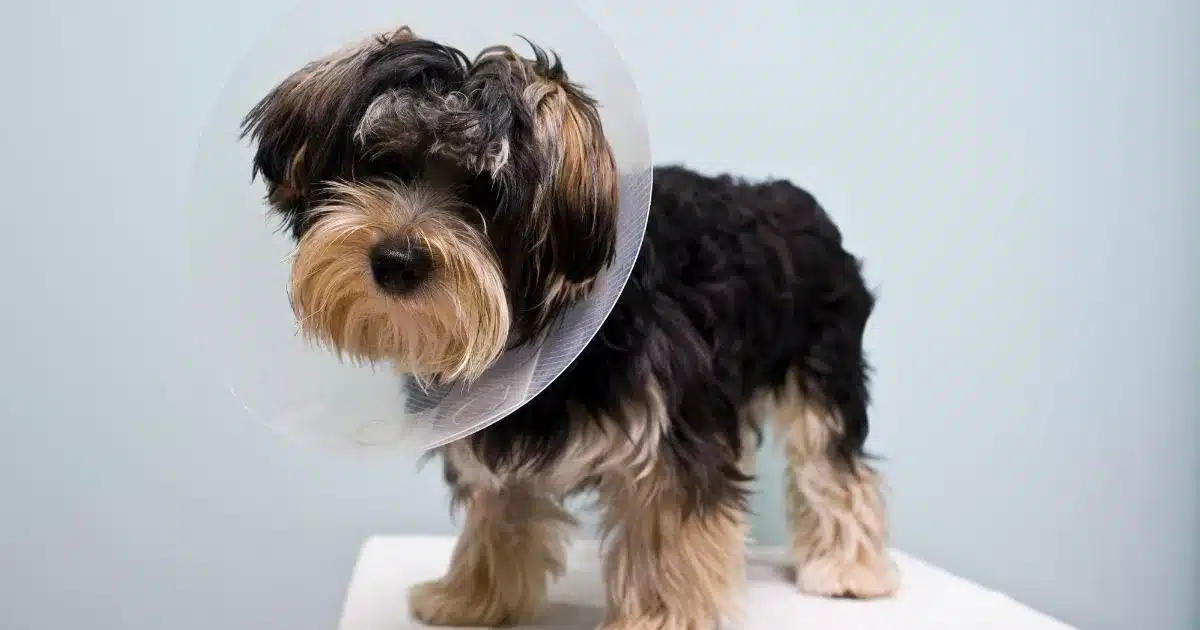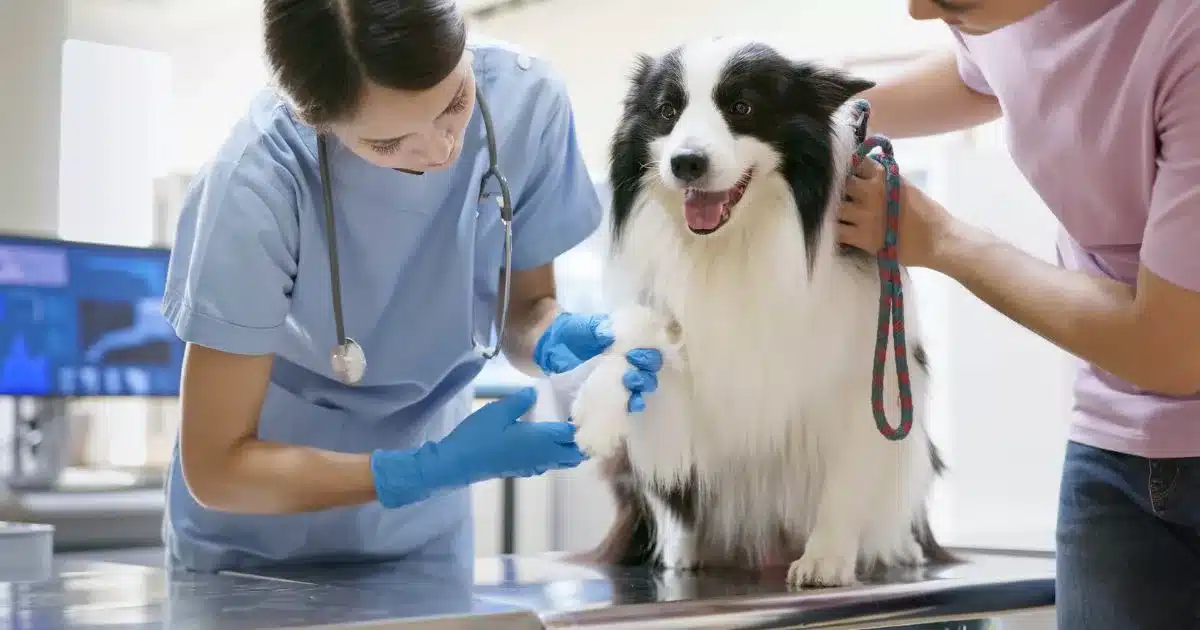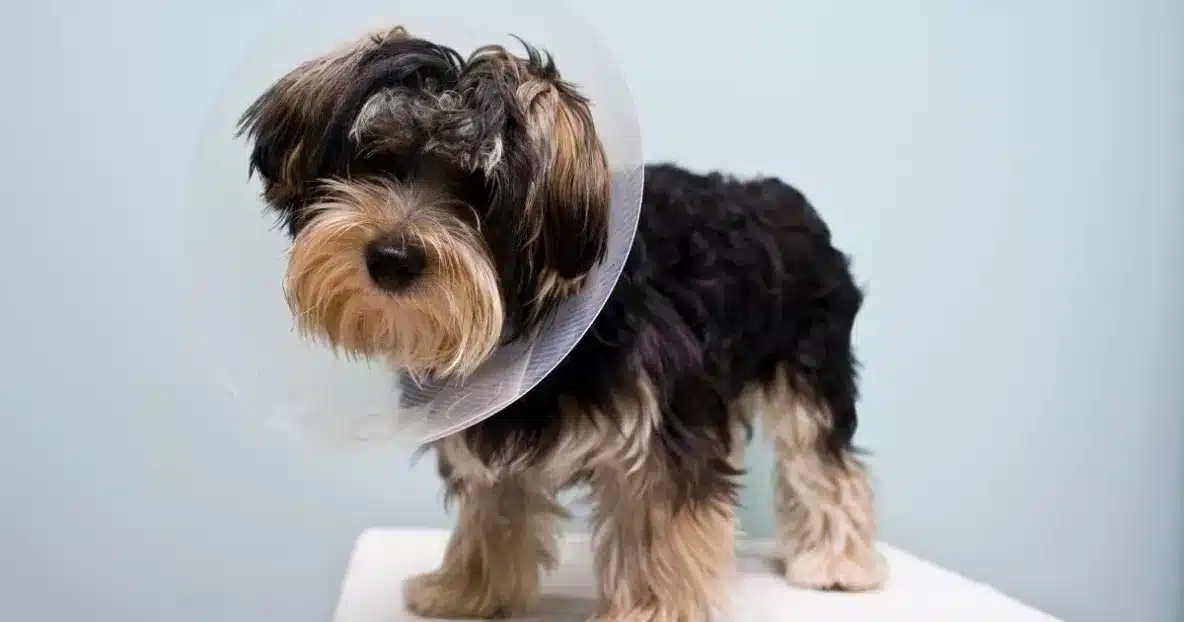
On average, Calgary puppy parents can expect to pay on average $500 to $1000 depending on the size of the breeds. There are options outside of Calgary's city limits that you can consider too.
For pet parents in Calgary, the choice to spay or neuter your dog carries with it a weight of both personal and community responsibility. Such procedures are far more than a medical decision; they're a preventative measure that can influence your pet's life and behavior, while also helping to maintain the balance of the local animal population. For dog owners, particularly those new to the process, understanding the nuances of spay and neuter practices can be daunting.
This blog aims to shed light on a range of important questions that dog owners in Calgary often have to consider. What is the ideal age to neuter or spay? Does the cost differ between the two? How might your dog's behavior change afterward? What are the potential drawbacks? We'll explore these questions and more, including why vets recommend these procedures, the consequences of delaying surgery, and the financial factors influencing the varying costs. By answering these queries, we aspire to equip Calgary's dog owners with the comprehensive insights needed to make educated, caring decisions about their pets' health and well-being.
What is the best age to neuter or spay a puppy?
For toy and small breed puppies, the ideal age for spaying or neutering is typically between six to nine months. However, larger or giant breeds may benefit from waiting until they are about 12 to 18 months old.
It's important to consider that the cost of anesthesia increases with the weight of the dog. Therefore, when planning for spay or neuter surgeries, keep in mind that veterinary clinics often provide different cost estimates for dogs under and over 50 pounds.
What happens if you wait too long to neuter or spay your dog?
Waiting too long to spay or neuter your dog can lead to various health and behavioral issues. For females, delaying the procedure increases the risk of developing uterine infections and breast tumors, which are malignant or cancerous in about 50% of dogs. For males, the longer they remain unneutered, the higher their risk of developing prostate problems and testicular cancer.
Spaying a dog before her first heat significantly reduces her risk of developing breast tumors later in life to just 0.5%. If spayed between her first and second heat, the risk increases to 8%. Waiting until after her second heat raises the chance to 26%, which is comparable to the risk for a dog who has never been spayed.
The only exception to consider delaying spaying beyond the first heat is if your female puppy suffers from severe vaginitis; undergoing one heat cycle can sometimes resolve this condition before proceeding with spaying.
Additionally, both sexes might exhibit more pronounced aggressive behaviors and a stronger tendency to roam, which can lead to accidents or fights with other animals. Therefore, timely neutering or spaying can prevent these health issues and help manage undesirable behaviors.
Are there any special care requirements for my puppy after the surgery?
After spaying or neutering, your puppy will require some special care to ensure a safe and smooth recovery. Here are the key guidelines:
-
Rest and Confinement: Keep your puppy calm and restrict their activity for about 10 to 14 days following the surgery to prevent stitches from tearing. This means no running, jumping, or rough play.
-
Pain Management: Your vet will likely prescribe pain medication to help manage discomfort. It's important to follow the dosage and schedule provided by your vet.
-
Incision Care: Keep the incision site clean and dry. Check the area daily for signs of infection, such as redness, swelling, or discharge. Prevent your puppy from licking or chewing at the stitches, possibly using an Elizabethan collar (cone) if necessary.
-
Diet and Hydration: Maintain your puppy’s normal diet, but you might need to limit food on the day of surgery based on your vet's recommendations. Ensure fresh water is available to keep them well-hydrated.
-
Follow-up Visits: Schedule a follow-up visit with your vet to remove stitches (if they aren't dissolvable) and to check on how the healing process is progressing.
Providing this level of care will help your puppy recover more comfortably and reduce the risk of complications after their surgery.

Disclaimer: Research on Spay & Neuter Costs
The information provided about puppy spay & neuter costs in Calgary is based on our research and is intended for general guidance only. Prices can vary depending on specific veterinary clinics and the individual needs of your pet. We recommend contacting your local Calgary veterinarian for the most accurate and up-to-date pricing information.
For corrections and updates to prices listed below, please email [email protected]
City Centre Animal Hospital - Airdrie
Incision Type: scalpel
Recommended Age: 6 months
Spay & Neuter Costs From: $450 to $750
Pre-surgery Blood Work: $210/optional
Post-surgery Care: $45
Healing Time: 14 days
Edgemont Veterinary Clinic
Incision Type: scalpel
Recommended Age: 6 months, depends on breed, females - 1 year to 18 months
Spay & Neuter Costs From: $600 to $800
Pre-surgery Blood Work: $100-$300/highly recommended
Post-surgery Care:
Healing Time: 14 days
Canyon Meadows Veterinary Clinic
Incision Type: scalpel
Recommended Age: minimum 6 months
Spay & Neuter Costs From: $600 to $800
Pre-surgery Blood Work: $100-$300/highly recommended
Post-surgery Care:
Healing Time: 14 days
Britannia Kingsland Veterinary Clinic
Incision Type: scalpel, laser
Recommended Age: 1 years old
Spay & Neuter Costs From: $543 to $630
Pre-surgery Blood Work: $105/optional
Post-surgery Care: $125 for new clients/free for existing clients
Healing Time: 10-14 days
Healthy PAWS Veterinary Hospital
Incision Type: scalpel, laser, electrosurgery
Recommended Age: 8 months to 1 year
Spay & Neuter Costs From: $500 to $1000 for giant breeds
Pre-surgery Blood Work: $270/optional
Post-surgery Care: included
Healing Time: 10-14 days
Animal Care Center of Strathmore
Incision Type: scalpel
Recommended Age: depends on breed
Spay & Neuter Costs From: $350 to $600 for giant breeds
Pre-surgery Blood Work: optional
Healing Time: 10-14 days
Cornerstone Square Veterinary Hospital
Incision Type: scalpel
Recommended Age: depends on breed
Spay & Neuter Costs From: $540 to $900+ for giant breeds, extra $225 for dogs after first heat
Pre-surgery Blood Work: $152
Post-surgery Care: Included
Healing Time: 10-14 days
How long does the recovery from spaying or neutering take?
Recovery time from spaying or neutering typically varies depending on the age and size of the dog, but most puppies bounce back quite quickly. Generally, the initial recovery period, where the most care is needed to prevent activity that could disrupt the healing process, lasts about 10 to 14 days. During this time, it's crucial to monitor the incision for any signs of infection or unusual discomfort.
After this initial phase, you should see significant improvement in your puppy’s behavior and energy levels. However, complete internal healing can take up to a few weeks. Always follow your veterinarian’s specific recommendations for post-operative care and any follow-up appointments to ensure your puppy is healing properly and to address any concerns promptly.
What are the signs of complications after spaying or neutering?
After your puppy has been spayed or neutered, it’s important to watch for any signs that may indicate complications from the surgery. Some key signs to monitor include:
-
Excessive Redness or Swelling: Some slight redness and swelling are normal, but if these symptoms worsen or persist beyond a few days, it could indicate an infection.
-
Persistent Pain: While some discomfort is expected after surgery, if your puppy seems excessively uncomfortable or cries out when touched, this could be a sign of pain that isn’t being adequately controlled.
-
Lethargy: It’s normal for your puppy to be somewhat lethargic immediately after surgery due to anesthesia. However, if lethargy continues for more than 24 to 48 hours, it could be a sign of a problem.
-
Loss of Appetite: A slight decrease in appetite is common right after surgery, but if your puppy refuses to eat for more than a day, consult your veterinarian.
-
Discharge or Bleeding from the Incision Site: Any discharge, particularly pus, or significant bleeding from the incision site is not normal and should be addressed by a vet immediately.
-
Dehiscence (Opening) of the Incision: If the surgical site begins to open, this is a serious complication that requires immediate veterinary attention.
-
Fever: A fever can be a sign of infection. If you suspect your puppy has a fever (normal canine temperature is between 101 and 102.5 degrees Fahrenheit), contact your vet.
Monitoring these signs and keeping in touch with your veterinarian will help ensure that any complications are addressed promptly and that your puppy recovers smoothly from their spay or neuter surgery.
Does a puppy change after being neutered?
Neutering a puppy can lead to some changes in behavior and physical health, primarily positive, particularly in preventing unwanted behaviors associated with mating instincts. Here are some common changes you might observe:
-
Reduced Aggression and Roaming: Neutering can help reduce aggressive behaviors and the tendency to roam or escape in search of a mate. This can make your puppy easier to manage and potentially safer from risks like traffic and fights with other animals.
-
Decreased Marking and Mounting: Many owners notice a significant decrease in urine marking and mounting behaviors after their dog is neutered. This can make cohabiting with your pet more pleasant and maintain cleanliness in the home.
-
Weight Management: Some puppies may gain weight more easily after being neutered due to a decrease in roaming and other active behaviors. It's important to monitor their diet and exercise routine to keep them at a healthy weight.
-
Mood Fluctuations: Some dogs may experience mild mood changes post-surgery, often due to hormonal adjustments. These are typically temporary as the puppy's body acclimates to the changes.
While neutering brings many benefits, particularly in terms of behavior and population control, these changes are important to consider when deciding on the right time for the procedure. By understanding these potential shifts, you can better prepare to support your puppy through their transition post-surgery.
Can spaying or neutering affect my puppy's growth or development?
Spaying or neutering can have some effects on your puppy's growth and development, particularly if the procedure is done early. Here’s how it can influence your dog:
-
Bone Growth and Joint Health: Hormones affected by spaying or neutering play a role in closing the growth plates in bones. When a puppy is spayed or neutered too early, before the growth plates have naturally closed, they may continue to grow taller than they otherwise would, which can potentially lead to joint issues and a higher likelihood of certain orthopedic problems like hip dysplasia, particularly in large breeds.
-
Weight and Obesity: Spaying or neutering can affect a dog’s metabolism, sometimes leading to easier weight gain. This shift means it’s important for owners to closely monitor their pet's diet and exercise regimen to prevent obesity, which can further stress joints and contribute to other health problems.
-
Physical Maturity: Altering a dog before they reach physical maturity can change their adult appearance slightly, often leading to a slightly leaner, less muscular build.
-
Behavioral Development: Hormones influence behavior, and removing them early can impact certain behavioral traits typically associated with maturity in unaltered dogs. While this can reduce behaviors like aggression and territorial marking, it may also impact confidence and certain aspects of cognitive development.
Therefore, the timing of spaying or neutering is a critical decision that should involve a discussion with your veterinarian, considering both the benefits and potential impacts on your puppy's overall development and health.
What kind of behavior changes can I expect after my puppy is spayed or neutered?
Spaying or neutering your puppy often leads to several notable behavior changes, most of which are beneficial in terms of managing your pet’s daily activities and interactions. Here are some changes you can generally expect:
-
Decreased Aggression: Neutering often reduces aggressive behaviors in male dogs, especially those linked to dominance and territoriality. Spaying can also lessen aggression in females, particularly during heat cycles.
-
Reduced Sexual Behaviors: After being spayed or neutered, dogs are typically less likely to exhibit behaviors related to mating, such as mounting, roaming to find partners, or urine marking. This can make them more amenable to home life and easier to manage during walks or in dog parks.
-
Lower Tendency to Roam: With the reduction of sexual urges, neutered or spayed dogs are less likely to wander far from home, reducing the risk of accidents or getting lost.
-
Possible Increase in Calmness: Some owners report that their pets seem calmer and more docile after the procedure, although this can vary greatly among individual dogs.
-
Potential for Weight Gain: Since the procedure can decrease the overall activity level and metabolism, some dogs may be prone to weight gain. Monitoring diet and exercise is crucial to avoid obesity.
How does spaying or neutering impact the risk of certain diseases?
Spaying and neutering can significantly impact a dog's health by altering the risk of developing several types of diseases:
-
Reproductive Cancers: Neutering eliminates the risk of testicular cancer in males and greatly reduces the risk of ovarian and uterine cancers in females. Spaying before the first heat cycle can also drastically reduce the risk of mammary tumors.
-
Prostate Problems: In males, neutering can reduce the likelihood of prostate diseases, such as prostate enlargement, which is common in older, unneutered dogs.
-
Uterine Infections: Spaying prevents pyometra, a potentially life-threatening uterine infection that can occur in unspayed female dogs.
-
Hernias and Tumors: Neutering can reduce the risk of perineal hernias and certain types of tumors, particularly those related to hormone-sensitive tissues.
-
Behavioral Disorders Linked to Hormones: By moderating the hormonal fluctuations that can contribute to certain behaviors, neutering or spaying can indirectly decrease the risk of stress-related disorders and other behavioral issues.
The health benefits of spaying or neutering are substantial, making it not only a responsible choice for population control but also a beneficial one for the long-term health of your pet. Discussing the timing and potential health impacts with your veterinarian can help you make the best decision tailored to your dog's specific needs and circumstances.
Is there a downside to neutering a dog?
Neutering, the surgical procedure to remove a male dog's testicles, can have both benefits and potential downsides. Here are some considerations:
-
Health Benefits: Neutering can reduce the risk of certain health issues in male dogs, such as testicular cancer and prostate problems.
-
Behavioral Changes: Neutering can lead to changes in behavior. Some dogs may become less aggressive or less prone to roaming, marking territory, or mounting other dogs. However, it's important to note that neutering may not completely eliminate these behaviors.
-
Potential Weight Gain: Neutered dogs may have a tendency to gain weight more easily. This can usually be managed through proper diet and exercise.
-
Impact on Growth and Development: Neutering typically occurs when a dog is still young, which means it may affect their growth and development. Some studies suggest that neutered dogs may have a slightly higher risk of certain orthopedic issues, although this is still debated among experts.
-
Hormonal Changes: Removing the testicles alters hormone levels in the body, which can have various effects on the dog's physiology and behavior. While this can reduce the risk of certain health issues, it may also have other implications that are not fully understood.
Overall, whether or not to neuter a dog should be a decision made in consultation with a veterinarian, taking into account the dog's individual health, behavior, and lifestyle factors.

